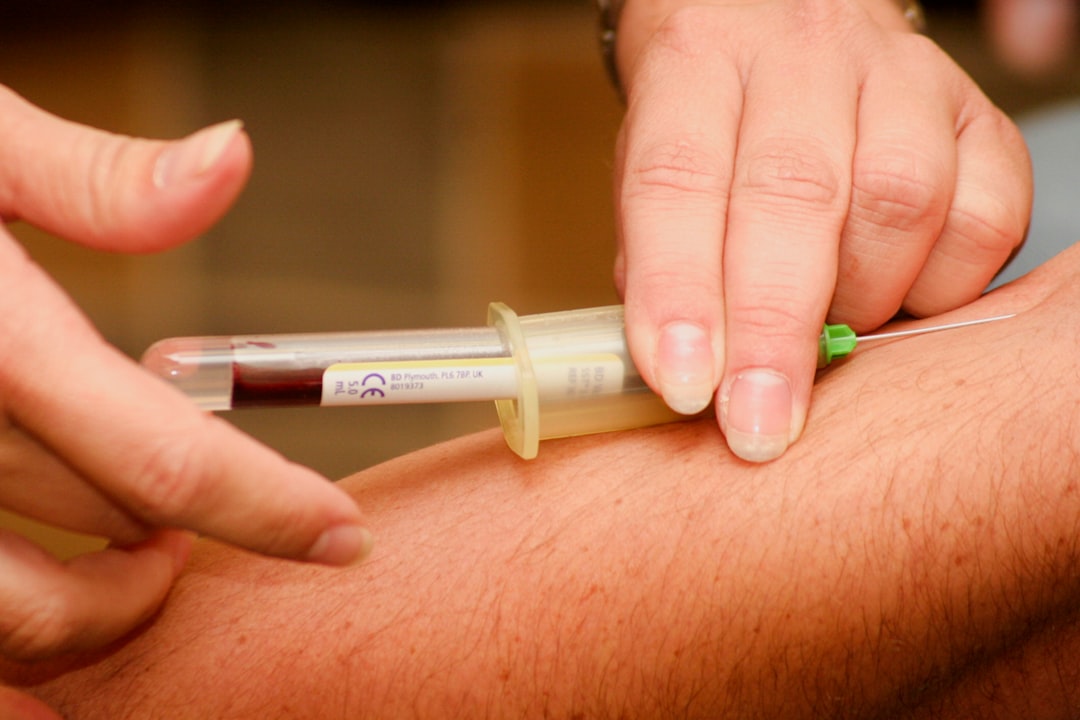- The Daily Tonic
- Posts
- The terrifying story of an infected blood scandal in the UK.
The terrifying story of an infected blood scandal in the UK.
Plus: What is glycemic index, and does it even matter?
Monday. Two words—Taylor Swift. Just wow.
As much as I'd love for us just to sit here and bask in the glory of her latest album, we've got pressing health news to address—and this one is a shocker. Could you imagine your kids being used as ‘guinea pigs’ in clinical trials using infected blood products? Well, that actually happened. Let’s dive in.
Today’s Menu 🌿
😲 You won’t believe this TRUE STORY out of the UK.
What is glycemic index, and does it even matter?
How to stop the 🪀 yo-yo weight loss.
The Daily Recipe 🐟 is packed with protein and healthy fats!
Be careful with these prescriptions 💊.
A list of the 🍫 TEN BEST protein bars, according to dieticians.
Read Time: 4 minutes

Children Used As ‘Guinea Pigs’
In the 1970s and 80s, a shocking series of medical trials involving infected blood products took place in the UK, impacting many children with blood clotting disorders. These trials, which have only recently been brought to light through documents acquired by BBC News (READ THE FULL STORY HERE), reveal a disturbing period in medical history when the pursuit of research goals trumped the safety and needs of patients.
Imagine that.
The trials covered in the article predominantly targeted children who required treatment for conditions like hemophilia. Tragically, the blood products used in these trials were often contaminated with viruses like hepatitis C and HIV.
So, while these products effectively stopped bleeding, they also had a high risk of transmitting infections. Despite researchers being aware of the risk, they were routinely administered to patients, including many children who were not informed or given a choice in their treatment.
One of the victims, Luke O'Shea-Phillips, shared his harrowing experience. At just three years old, he was treated with an infected blood product at Middlesex Hospital after a minor injury. Unbeknownst to him or his family, this treatment was part of a clinical trial. The doctors knew of the potential contamination but proceeded without proper consent, prioritizing their research over patient safety.
Unfortunately, Luke's story is not unique; many children treated during this time were similarly exposed to severe health risks without their or their families' informed consent.
These unethical practices extended to a specialist school for disabled children with a hemophilia unit on-site. Here, boys were treated quickly for bleeding episodes, but they also became subjects in risky clinical trials. They were given excessive amounts of a blood product called Factor VIII, far more than medically necessary, to test its efficacy in reducing bleeding events. This was done without the consent of the boys or their parents, turning these children into unwitting participants in medical experiments.
The impact of these trials has been devastating. Of the children treated with these contaminated products, many contracted life-threatening illnesses as a direct result of their treatment. The majority of these children have now passed away, and those who survive continue to deal with the consequences of the diseases they contracted.
The public outcry over these practices has led to a public inquiry, with a final report due in May. The inquiry aims to uncover the full extent of the wrongdoing and provide some form of closure to the victims and their families. Regardless of what comes out of these investigations, the scars left by these trials will undoubtedly last a lifetime. The damage is already done.
The key takeaway? The 1970s and 80s are not that long ago. We are talking about a very dark chapter that took place just a few decades ago. Let this serve as a grim reminder of the importance of ethical standards in clinical research and how easy it is for interested parties to violate patient trust to further advance their own interests.
This stuff does happen, and while we are not saying there should be complete distrust in our medical system, there really shouldn’t be complete blind trust either. We should be allowed (and encouraged) to ask questions… about everything. That is the only way we will keep our medical system in check.
Related Articles
Psst… You can reply with recommendations too!
The Daily Recipe
Try to guess… It doesn’t get much better than a delicious dish starring one of our favorite fish. Honey, siracha, and salmon? Say less!
Curious? Click below to discover the recipe and see if you guessed right.
Would you try it? |
Tonic Shots
💊 Be Careful With These Prescriptions
Antipsychotic drugs to treat dementia are linked to more health dangers than previously thought. READ MORE.
🍫 Do You Like Protein Bars?
Here is a list of the TEN best protein bars, according to dieticians. GET THE LIST.
💵 Healthy But At A Discount.
Shop for healthy food options at a discount, just because they might not be perfect. LEARN MORE AND SAVE!
"Ethics and oversight are the crucial linchpins in ensuring the integrity of any human study."
How was the newsletter? |
